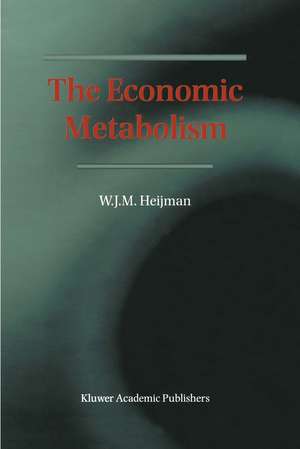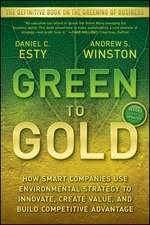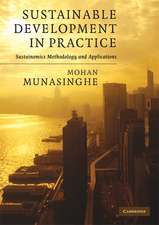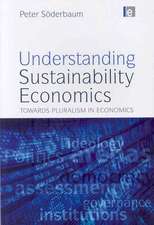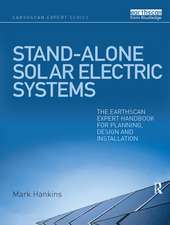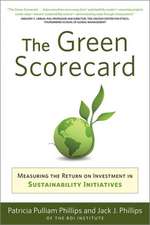The Economic Metabolism
Autor Wim Heijmanen Limba Engleză Paperback – 5 oct 2012
After studying the book, the basic/intermediate level student should be able to understand the basic principles of economics, especially microeconomics; understand the economic principles of environmental policy; understand the economic principles of resource extraction; apply the standards for efficiency and sustainability; and apply the theory to practical problems.
| Toate formatele și edițiile | Preț | Express |
|---|---|---|
| Paperback (1) | 636.12 lei 6-8 săpt. | |
| SPRINGER NETHERLANDS – 5 oct 2012 | 636.12 lei 6-8 săpt. | |
| Hardback (1) | 642.51 lei 6-8 săpt. | |
| SPRINGER NETHERLANDS – 30 apr 1998 | 642.51 lei 6-8 săpt. |
Preț: 636.12 lei
Preț vechi: 748.38 lei
-15% Nou
Puncte Express: 954
Preț estimativ în valută:
121.74€ • 126.93$ • 101.17£
121.74€ • 126.93$ • 101.17£
Carte tipărită la comandă
Livrare economică 21 martie-04 aprilie
Preluare comenzi: 021 569.72.76
Specificații
ISBN-13: 9789401061155
ISBN-10: 9401061157
Pagini: 208
Ilustrații: VII, 197 p.
Dimensiuni: 155 x 235 x 11 mm
Greutate: 0.3 kg
Ediția:1998
Editura: SPRINGER NETHERLANDS
Colecția Springer
Locul publicării:Dordrecht, Netherlands
ISBN-10: 9401061157
Pagini: 208
Ilustrații: VII, 197 p.
Dimensiuni: 155 x 235 x 11 mm
Greutate: 0.3 kg
Ediția:1998
Editura: SPRINGER NETHERLANDS
Colecția Springer
Locul publicării:Dordrecht, Netherlands
Public țintă
ResearchCuprins
1. Theory of consumption.- 2. Theory of production.- 3. Analysis of costs and supply function.- 4. Market equilibrium, taxation and the market dynamics.- 5. General equilibrium theory.- 6. Welfare economics and cost-benefit analysis.- 7. Market forms.- 8. Production factors.- 9. Income distribution.- 10. Efficiency in resource depletion.- 11. Economic environmental policy instruments.- 12. Macro economic environmental aspects.- 13. Conditions for sustainable resource use.- 14. Economic growth.- 15. Resource depletion and economic growth.- 16. Spatial aspects of environmental problem.- 17. Steady-state economics.- 18. Sustainable growth and economic metabolism.- Literature.
